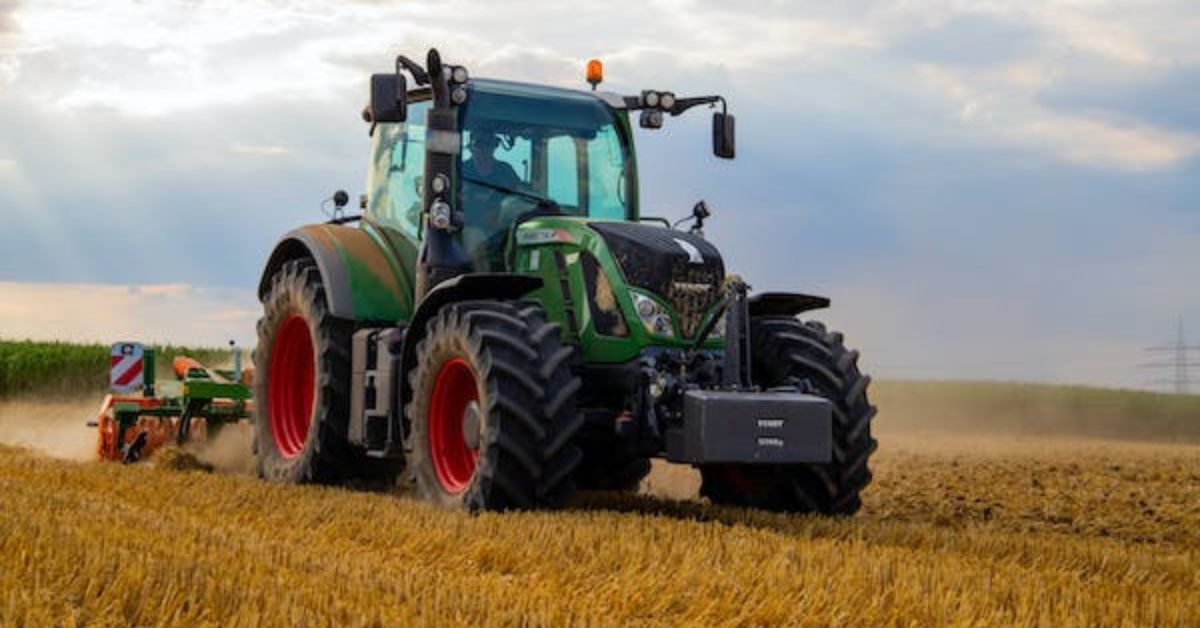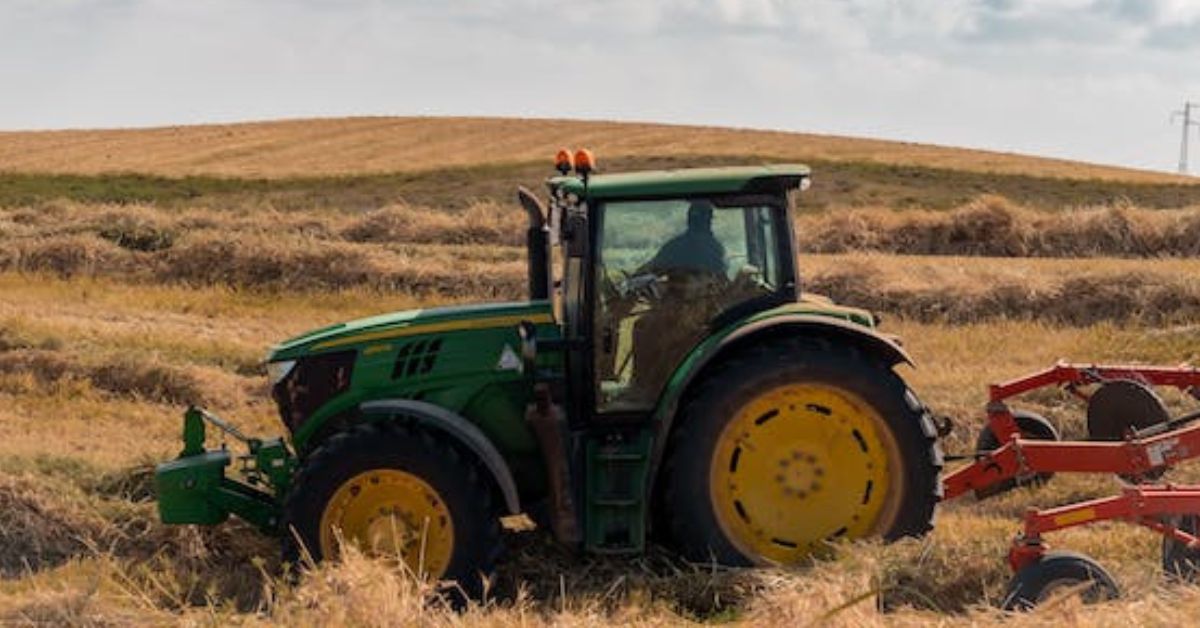Welcome to our blog on the topic of whether farm tractors have titles. If you’re a farmer or a farm equipment enthusiast, you may have wondered whether or not your trusty tractor requires a title like other vehicles on the road. This blog aims to provide a comprehensive answer to this question. It will also explore the broader topic of vehicle titles and their importance. We will begin by defining what a vehicle title is and its significance, before diving into the specifics of farm tractors and their registration requirements. We’ll also explore state-specific requirements and the pros and cons of having title requirements for farm tractors. By the end of this blog, you will have a clearer understanding of whether or not your farm tractor needs a title and the reasons behind it. Let’s get started!
What is Vehicle Title?
A vehicle title is a legal document that establishes ownership of a vehicle. It contains important information about the vehicle, such as the make, model, year, and vehicle identification number (VIN). The title also includes the owner’s name, address, and any liens or encumbrances on the vehicle.
Vehicle titles are important for several reasons. Firstly, they prove ownership of the vehicle, which is necessary when selling, trading, or registering the vehicle. Additionally, titles serve as a means of tracking the history of the vehicle, including any accidents or repairs it has undergone. Finally, vehicle titles provide a means of ensuring that the vehicle is not stolen, as the title is required to register the vehicle with the state.
Most vehicles that are used on public roads are required to have titles, including cars, trucks, motorcycles, and trailers. However, there are some exceptions, such as off-road vehicles and certain types of trailers.
Having established the importance of vehicle titles, let’s move on to exploring whether farm tractors are among the types of vehicles that require titles.
What are Farm Tractors?
Farm tractors are heavy-duty vehicles that are primarily used for agricultural purposes, such as tilling soil, plowing fields, and harvesting crops. They typically have large, powerful engines and are designed to operate in rough terrain and adverse weather conditions.
When it comes to registration requirements, farm tractors are treated differently than other types of vehicles. In general, farm tractors are not required to be registered with the state unless they are operated on public roads. This means that if a farm tractor is used exclusively on private property, it does not need to be registered, and therefore does not require a title.
However, if a farm tractor is used on public roads, it may be subject to registration requirements, depending on the state. Some states require farm tractors to be registered, while others do not. Even in states where registration is required, there may be exceptions for certain types of farm tractors or for specific uses, such as transporting agricultural products.
In comparison to other types of vehicles, farm tractors are often exempt from many of the requirements that apply to cars, trucks, and other motor vehicles. For example, they may not be required to have license plates, insurance, or emissions testing.
So, do farm tractors have titles? In most cases, the answer is no. If a farm tractor is not required to be registered with the state, then it does not need to have a title. However, if a farm tractor is registered, it may be subject to title requirements, depending on the state.

State-Specific Requirements
The requirements for farm tractor titles can vary widely from state to state. While some states require titles for all registered vehicles, others may have more lenient requirements for farm tractors specifically.
States that require farm tractors to be titled
Some states require all farm tractors to be titled, regardless of their intended use. These states include Alabama, Georgia, Kansas, Kentucky, Louisiana, Mississippi, Missouri, Montana, Nebraska, North Carolina, Oklahoma, Pennsylvania, South Carolina, Tennessee, Texas, Virginia, and West Virginia.
States that require specific requirements for farm tractors to be titled
Other states have more specific requirements for farm tractors. For example, in California, farm tractors are exempt from registration fees but may still require titles if they are used on public roads. In Florida, farm tractors are exempt from registration if they are used exclusively for agricultural purposes.
States that don’t require farm tractors to be titled
In contrast, there are states that do not require farm tractors to have titles at all. These states include Arizona, Arkansas, Colorado, Idaho, Illinois, Indiana, Iowa, Maine, Michigan, Minnesota, New Mexico, North Dakota, Ohio, Oregon, South Dakota, Utah, Washington, Wisconsin, and Wyoming.
It’s important to note that these requirements can change over time, so it’s always a good idea to check with your state’s Department of Motor Vehicles (DMV) to find out the most up-to-date requirements for farm tractor titles.
What are the advantages of title requirements?
There are arguments for and against requiring titles for farm tractors, ultimately, the decision comes down to individual states and their specific needs. Here are some of the advantages and disadvantages of title requirements for farm tractors:
Advantages:
Protection against theft:
Requiring titles can help prevent stolen tractors from being sold or registered.
Accountability:
Titles provide a paper trail of ownership, which can help to hold individuals accountable in the event of an accident or other incident involving the tractor.
Better tracking of vehicle history:
Titles provide a record of the vehicle’s history, which can be useful for future owners, repair shops, and government agencies.
Disadvantages:
Administrative burden:
Requiring titles can place an administrative burden on farmers and government agencies responsible for processing them.
Cost:
Requiring titles can add additional costs for farmers, who may already be operating on slim profit margins.
Confusion and inconsistency:
State-specific requirements for farm tractors can be confusing and inconsistent. It makes it difficult for farmers to know what is required of them.
Conclusion:
Farm tractors are heavy-duty vehicles used primarily for agricultural purposes. Their registration requirements can vary widely from state to state. While some states require that all farm tractors be titled, others do not require titles at all. The decision to require titles for farm tractors comes with both advantages and disadvantages, such as protection against theft and better tracking of vehicle history versus administrative burden and added costs for farmers. Ultimately, the decision should be based on the needs and circumstances of individual states, and farmers should always check with their state’s DMV to find out the most up-to-date requirements for farm tractor titles.
FAQs
Can I register my farm tractor for use on public roads?
It depends on the state where you live. Some states allow farm tractors to be registered for use on public roads if they meet certain requirements, such as having working headlights and taillights. Check with your state’s DMV to find out the specific requirements in your area.
What is DMV?
DMV stands for Department of Motor Vehicles, which is a government agency responsible for regulating motor vehicles and issuing driver’s licenses and identification cards.
How do I obtain a title for my farm tractor?
If your state requires titles for farm tractors, the process for obtaining one is similar to that for any other vehicle. Contact your state’s DMV for specific instructions.
Can I sell my farm tractor without a title?
If your state requires titles for farm tractors, you will need to obtain a title before selling the vehicle. If your state does not require titles, you may still need to provide proof of ownership, such as a bill of sale.
Are there any exemptions for farm tractors in terms of registration or titling requirements?
Yes, some states may have exemptions or special rules for farm tractors. For example, in some states, farm tractors used exclusively for agricultural purposes may be exempt from registration fees or other requirements. Check with your state’s DMV to find out the specific rules in your area.

